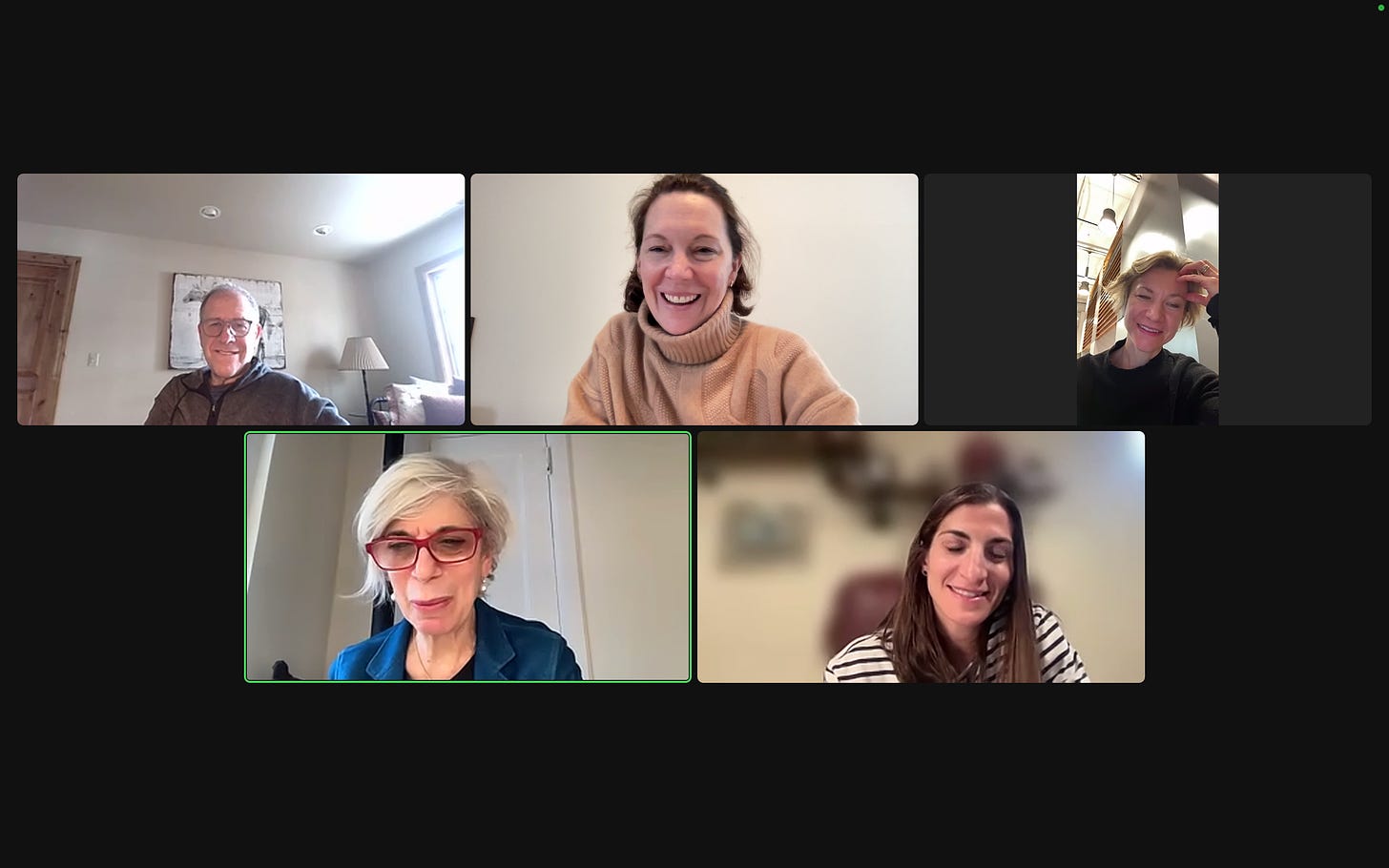Hi, all.
As I write this, it’s been a month since we launched Authors Equity. After a year of working to assemble the puzzle pieces of a new company, it’s exhilarating (and daunting) to finally step into the public eye.
We’re a small team by design (there are just six of us), and the incredible volume of debate, invitations, suggestions, queries, and above all, submissions has been both overwhelming and inspiring. Please know that even if we can’t always respond directly, we’re reading and listening to everything, and we’re so grateful for your passion and enthusiasm.

Cue: our newsletter
As people who grew up in publishing, we’ve always believed our role was to put authors’ voices out into the world while keeping our own thoughts to ourselves. But the impulse that led us to launch Authors Equity – and the response from so many of you – suggests there’s an appetite for publishers to be more open. That’s why we’re starting this newsletter – to share our ideas and the things that we learn as we put them into practice.
In future issues, I’ll happily cede the stage to others on our team and in our networks to provide their own perspectives. We’ll make space for an evolving FAQ and probably more than a few dog photos (sorry, cats, we’re definitely Team Dog). But, for this first post, I want to simply share the vision behind Authors Equity. Does the world really need another publisher–especially one founded by not one but three former publishing executives? Perhaps not. And yet, we ardently, eagerly, even joyfully persist.
I hope you’ll bear with me while I look briefly back before we move further forward.
Where we’ve been
I’ve worked in publishing for a long time. When I started as an editorial assistant at W.W. Norton in 1992, we were still using typewriters and white-out to make book contracts. But since that was also just a year before the release of the Mosaic web browser, I had the good fortune of being in the room when various “it”s happened: the first consumer websites, ecommerce, digital audio, eBooks.
Despite some tectonic shifts, this industry has been remarkably stable in many ways, especially compared to other media. The explosive growth of online retail, self-publishing, podcasts, and social media has taken place without making dinosaurs of bookstores or publishers. In fact, there are more publishers selling more books to more readers now than ever before.
And yet, underneath the surface of a stable market, there’s a lot of angst out there right now. Why?
You doubtless have your own answers to that question. But the one that’s gnawed at me over the past few years has to do with the changing balance of power between publishers and authors.
The changing landscape
Up until pretty recently, readers were influenced to buy particular books by the forces of mass media and mass distribution. In that world, publishers held the unique power to decide which books and authors would win. Good publishers had good relationships with their authors, and good agents worked to ensure reasonable author consultation in book contracts. But consultation is not control, and in most matters, authors had very little of it. As long as publishers could pull rabbits out of hats, there wasn’t much reason to argue.
But that’s not the world we live in today. We publishers work harder than ever to impact sales. We’ve invested and innovated. We’ve embraced digital and been driven by data. But despite these efforts, we’ve lost the power to uniquely influence the consumer.
In a world without mass media, there’s no longer a set formula for making a book successful. That’s not a bad thing, but it’s understandably unsettling for everyone looking for order in our universe. Some might feel like success is entirely random, and that’s unsettling.
But success isn’t random. Even when our powers of prediction fail (as they often do), when we look back at the books that performed well, we find excellent writing that meets some form of concrete need, and an author who’s particularly good at connecting to readers (on or off the page).
Putting this another way: in the old market, degrees of success came down to what the publisher did or didn’t do. In the new market, it’s about the author. What they put on the page, and how they break through the noise to capture reader attention: that’s what makes the difference.
Our approach
Authors Equity was born from our recognition of this crucial shift. Since authors play a central role in capturing readers, authors deserve more control, support, and reward than the traditional model allows.
What does this mean? It means flexibility and common sense in contracts, setting aside outdated rules, and giving authors the deciding vote in issues they care about – from how a book is marketed to how it looks on the shelf. It means assembling teams with the right mix of skills and experience perfectly tailored to the project, and then giving those teams a real stake in the book’s success. It means looking beyond industry walls for new ideas, while respecting the deep wells of wisdom that still reside within publishing. And, above all, it means investing more in the author and the book than in corporate infrastructure.
That’s all for now.
I hope you’ll stay tuned in the coming weeks and months for more from our team and others in our growing community. We’re not operating this newsletter on a set schedule, but when we have something we think you’ll find interesting, we’ll share it.
And if you’d like to send us thoughts about this post or anything else, we do – 100 percent and with interest and appreciation – read everything in this inbox.
All the best,
Madeline






You had me at "common sense in contracts"! Giving authors a say in what happens with their own books shouldn't sound so revolutionary. The publishing industry is ripe for disruption, good on you for leading the charge.
Hey, good luck!